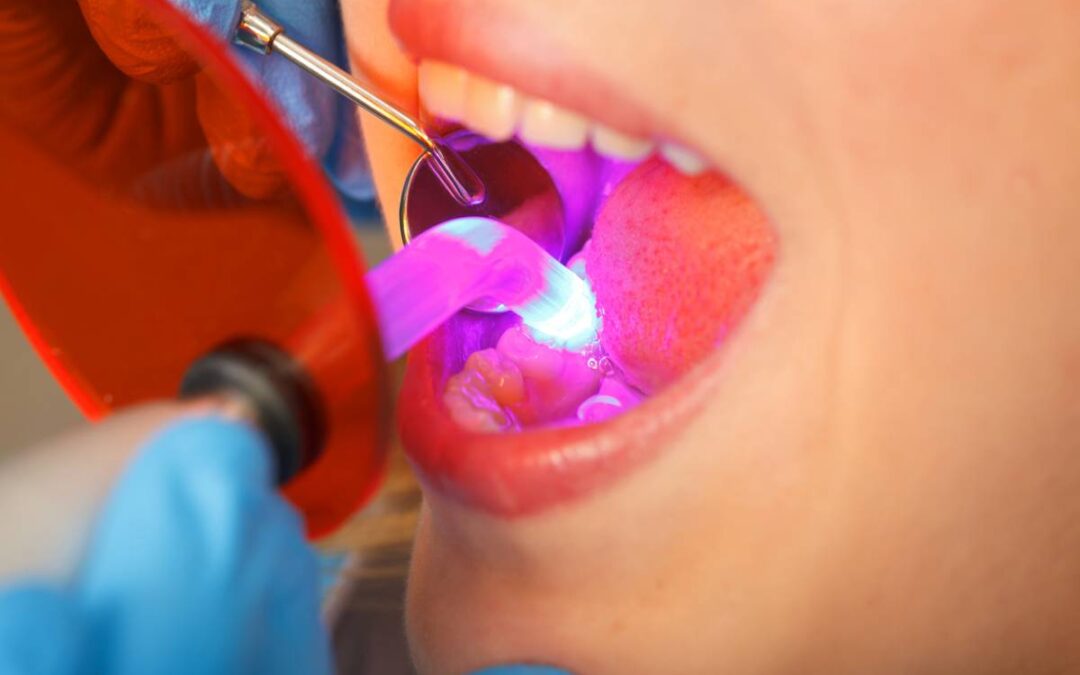Dental bonding is a versatile procedure that improves the appearance of your teeth and smile. Nowadays, bonding is a popular choice because it can be more affordable than other cosmetic and restorative procedures, requiring less preparation of the tooth at the same time. But how long does dental bonding last? Keep reading to learn about the longevity of your bonding results and tips on how to extend their lifespan them for longer.
What Is Dental Bonding?
Dental bonding is a procedure that uses resin composite (the same tooth-colored material that is used for dental fillings) to alter the appearance of your teeth. During the procedure, dentists apply the resin composite to the part of the tooth that needs adjustment, mold it to the desired shape, and then harden and polish it. As a result, dental bonding looks indistinguishable from the natural teeth.
The purpose of the procedure can be cosmetic or restorative. The list of dental issues that can be solved with dental bonding includes:
- Chipped and cracked teeth
- Minor gaps between the teeth
- Misshapen teeth
- Teeth of uneven size or length
- Stained or discolored teeth
- Exposed roots
How Long Does Dental Bonding Last?
In general, you can expect the results of your dental bonding to last for 4 to 8 years. However, the exact longevity will depend on several factors:
- The location of the bonded tooth: Typically, bonding of the front teeth lasts not as long as bonding of the teeth at the back of the mouth.
- Quality of the resin composite material used for the procedure
- Oral hygiene habits: The more effective and thorough your oral hygiene habits are, the longer your dental bonding will last.
- Dietary habits: Some foods and beverages can stain or scratch the surface of the resin composite.
- Lifestyle habits: Smoking and chewing on nails or objects can cause your bonding to get stained or wear out faster.
Dental bonding is not a permanent solution. You will need to repeat the procedure when the current bonding starts showing the following signs of wear:
- The bonding appears stained, darkened, or discolored.
- The binding is cracked, chipped, or feels loose (this condition requires immediate attention as it can compromise the health of the tooth underneath the bonding)
- The bonded teeth have a rough or uneven texture and cause rubbing, lacerations, or discomfort in the mouth.
- Your teeth are sensitive to cold and hot foods and drinks.
- There are changes in the way your teeth fit together or in the way your bite feels when you close your mouth.
Visiting your dentist twice a year for checkups is the best way to monitor the condition of your dental bonding and anticipate potential issues.
How to Make Your Dental Bonding Last Longer
Dental bonding can offer a significant improvement in the way your smile looks in just one dental visit. Understandably, you would want to have these results last for as long as possible. Below, we talk about the main rules of care for bonded teeth.
- Brush your teeth with fluoride toothpaste twice a day for two full minutes, making sure to reach all the areas in the mouth. This way, you will effectively remove plaque and food residue from your natural and bonded teeth and prevent them from becoming stained and discolored over time.
- Use a soft or medium-soft toothbrush.
- Avoid abrasive toothpaste, such as toothpaste with soda or charcoal, as it can create micro scratches on the surface of your dental bonding. Also, do not use whitening solutions on your bonded teeth.
- Thoroughly floss every evening, being careful and gentle when flossing the bonded teeth. Do not snap the thread against the teeth.
- Visit your dentist twice a year for professional cleanings.
- Abstain from staining foods and beverages (red wine, coffee, black tea, berries, soda, etc.), and brush your teeth immediately after the meal if you consume any of such products.
- Avoid foods that require a lot of biting force (for example, hard apples) and crunch foods, as they can break or scratch your dental bonds.
- Wear a mouth guard if you play contact or extreme sports to protect your bonded teeth from physical damage.
- Do not use your teeth as tools, and do not chew on hard objects, such as pens, pencils, or your nails.
- Wear a mouth guard at night if you notice that you have signs of bruxism—teeth grinding and jaw clenching—as this condition can cause your dental bonding to break or wear out faster.
Get Dental Bonding at iSmiles LB
Make an appointment with an experienced cosmetic dentist at the iSmiles LB dental office today and get high-quality dental bonding that lasts. We look forward to your visit.


